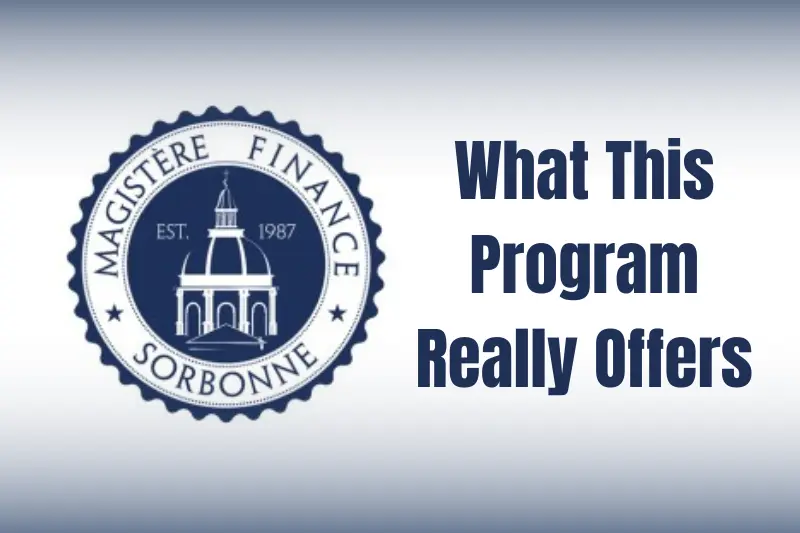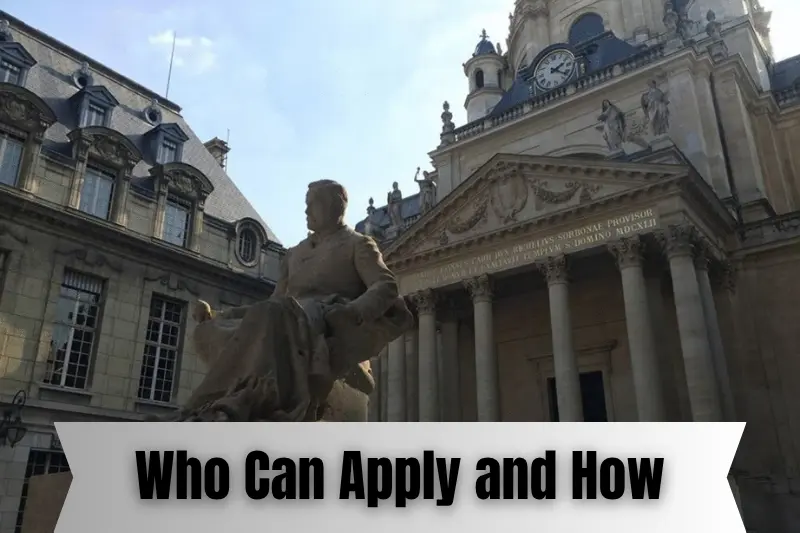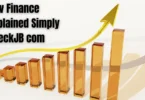Are you thinking about a career in finance and looking for the right course? The magistère finance program might be just what you need. It’s a popular and respected academic path in France that helps students build strong skills in economics, business, and finance.
Many students choose magistère finance because it offers real-world learning, top-level teaching, and great job opportunities after graduation. In this post, we’ll explore what this program is all about, how it works, and why it might be the right choice for your future.
What This Program Really Offers

The magistère finance program gives students deep knowledge of finance, real-world experience, and strong job skills. Here’s what it includes:
In-Depth Finance Knowledge
Learn everything from basic finance to advanced topics.
- Courses cover economics, banking, accounting, and financial markets
- Lessons are updated with real-world financial trends
- You’ll learn how to analyze data and make smart decisions
- Professors often have real industry experience
Hands-On Projects and Case Studies
Not just theory—you solve real problems like professionals do.
- Work on real business cases and financial problems
- Learn to use tools like Excel, Python, or finance software
- Group work helps you build teamwork and communication skills
- Present projects just like you would in a real job
Internship Opportunities
Get work experience while you study.
- Internships are often built into the program
- Many students work in banks, firms, or financial startups
- You build a strong resume before you graduate
- Some internships lead to job offers
A Clear Career Path
This program prepares you for high-level jobs in finance.
- Students often become analysts, consultants, or bankers
- Companies like BNP Paribas, Société Générale, and Deloitte hire graduates
- Alumni networks help you connect with people in the industry
- You’ll know exactly what to expect in your first job
You may also like it:
Personal Finance Guide: Tips for Financial Success
Smart Home Trends: Top Innovations for 2025
Easy Budgeting Tips: Manage Your Money Smartly
Why Choose This Path?
Choosing the right finance program can shape your future. Here are some great reasons why the magistère finance path stands out:
Strong Academic Training
You get a solid foundation in finance and economics.
- Learn from expert professors with real experience.
- Study up-to-date topics that matter in today’s financial world.
- Gain skills that are useful in many finance jobs.
Practical Experience
You don’t just learn theory—you get hands-on work.
- Work on real projects and case studies.
- Take part in internships to build your resume.
- Learn to use finance tools and software used in the industry.
Excellent Career Opportunities
This program opens doors to many finance jobs.
- Graduates often find work quickly after finishing.
- Companies in banking, consulting, and finance look for these graduates.
- The program’s reputation helps you stand out to employers.
Networking and Support
You join a community that helps you grow.
- Connect with alumni who work in top finance roles.
- Access career services and guidance throughout the course.
- Meet professionals through events, talks, and internships.
Who Can Apply and How

Not everyone can join the magistère finance program. Here’s who can apply and how to do it step-by-step.
Eligibility Requirements
Know if you qualify before applying.
- Usually, you need a strong background in economics, finance, or business.
- Most programs ask for a bachelor’s degree or equivalent.
- Some schools require good grades and relevant coursework.
- International students may need to prove language skills like French or English.
Admission Process
Understand the steps to get accepted.
- Many programs ask for an application form and your academic records.
- You might need to take written tests or entrance exams.
- Some schools hold interviews to check your motivation and skills.
- Submit recommendation letters or a motivation letter to show your interest.
Tips for a Strong Application
Make your application stand out.
- Prepare your documents carefully and early.
- Practice for any exams or interviews.
- Highlight your finance-related experience or projects.
- Show clear goals about why you want to study in this program.
Application Deadlines and Important Dates
Don’t miss key deadlines.
- Each university has its own application period—check their website.
- Start preparing your documents at least 3 months before deadlines.
- Keep track of test dates and interview schedules.
- Submit your application well before the final date to avoid last-minute issues.
What to Expect During the Course
Wondering what your studies will look like? Here’s a clear picture of the course experience.
Course Structure
Understand how the program is organized.
- The program usually lasts 2 to 3 years.
- It includes lectures, seminars, and group work.
- You’ll study both theory and practical finance topics.
- Many programs have a mix of exams and project assessments.
Learning Methods
See how you will learn and practice new skills.
- Expect interactive classes with discussions and case studies.
- Group projects help you work with classmates.
- You’ll use finance tools like spreadsheets and software.
- Guest lectures from industry experts are common.
Internships and Real-World Experience
Gain work experience during your studies.
- Internships are often part of the program curriculum.
- You can work in banks, companies, or finance startups.
- These experiences help you apply what you learn.
- Internships boost your resume and job chances.
Support and Resources
Know what help and tools are available.
- Access to libraries, online resources, and finance databases.
- Career services help with job search and interview prep.
- Professors and advisors guide your learning and career path.
- Networking events connect you with professionals and alumni.
Career Outcomes After Graduation
Wondering what jobs you can get after finishing the program? Here’s what to expect.
Job Opportunities
Explore the types of roles graduates often take.
- Many work as financial analysts, helping companies make smart money decisions.
- Some become consultants, advising businesses on finance strategies.
- Others find jobs in banking, such as investment or commercial banking.
- Roles in risk management, accounting, and asset management are also common.
Employers Who Hire Graduates
Know which companies look for these skills.
- Big banks like BNP Paribas and Société Générale often recruit graduates.
- Consulting firms such as Deloitte and PwC hire for finance roles.
- Many graduates work in financial startups or tech companies.
- Government agencies and international organizations also offer opportunities.
Salary Expectations
Get a rough idea of earnings after graduation.
- Entry-level salaries vary but are generally competitive in the finance sector.
- Graduates can expect steady growth with experience and skills.
- Some sectors, like investment banking, offer higher starting pay.
- Benefits often include bonuses, health insurance, and career development support.
Career Growth and Development
Plan your future beyond the first job.
- Many graduates move up to manager or director roles in a few years.
- Continuing education, like MBA or certifications, helps advance careers.
- Networking and gaining diverse experience open more opportunities.
- Lifelong learning is key to staying successful in finance.
Conclusion
The magistère finance program offers a strong mix of learning and real work experience. It prepares you well for many finance jobs and helps you build a great career.
If you want to work in finance and enjoy both study and practice, this path is worth considering. With hard work and focus, it can open many doors for your future.
Frequently Asked Questions about Magistère Finance
What is magistère finance?
It is a special finance program in France that teaches both theory and practical skills for finance careers.
Who can apply for this program?
Usually, students with a bachelor’s degree in economics, finance, or business can apply. Good grades and some related courses help.
Is the program hard?
It can be challenging because it covers advanced finance topics and requires projects and internships. But with effort, it’s very manageable.
Can international students join?
Yes, many programs accept international students, but you may need to prove your language skills.
What jobs can I get after graduating?
You can work as a financial analyst, consultant, banker, or in many other finance roles in companies or banks.
Are internships part of the program?
Yes, internships are usually included to give you real work experience.
How long does the program last?
It typically takes 2 to 3 years to complete.
You may also like it:
Saving Money Tips for Students: Master Your Finances Now!
Startup Marketing Strategies: Boost Your Business Fast







